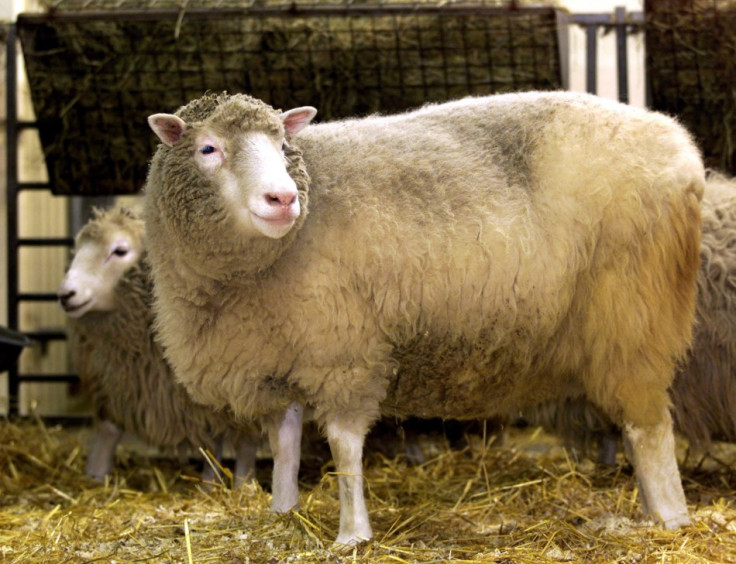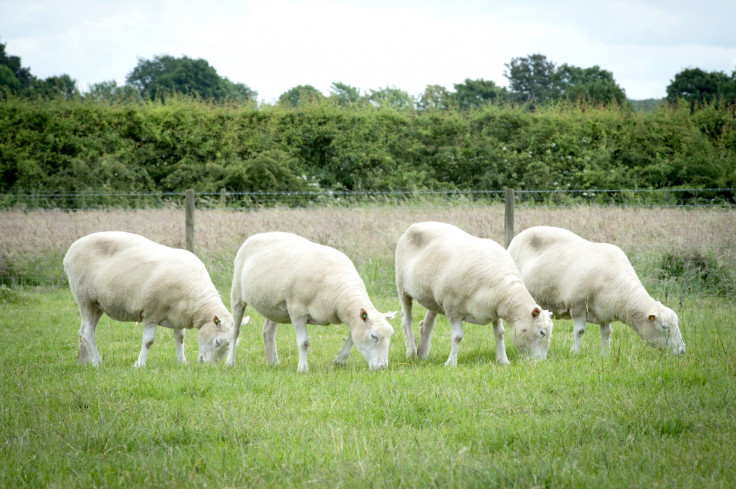20 years on clones of Dolly the sheep are healthy and ageing well
No signs of metabolic disease were recorded while osteoarthritis problems were marginal.
Clones of Dolly the sheep are ageing normally and are in relatively good health, scientists have discovered. The sheep are evidence that cloned animals are not more prone to age-related disease than animals born naturally.
This year marked the 20<sup>th anniversary of the birth of Dolly the sheep – the first successful animal clone ever created. Dolly was derived from adult cells through a technology known as somatic-nuclear cell transfer or SCNT (see box).
The ewe died at the young age of 6½ years after suffering from an age-related and debilitating bone disease known osteoarthritis.
This has triggered concern in the scientific community that SCNT is unsafe on the long-term, and that it leads to premature and unhealthy ageing. However, little research has been done to confirm this.
So in a study conducted in 2015 and now published in the journal Nature Communications, Kevin Sinclair from the University of Nottingham and his colleagues decided to assess the health of thirteen cloned sheep aged between 7 and 9 years of age.
Four of these animals - Debbie, Denise, Dianna and Daisy - had been cloned using nuclei from the same mammary-gland cell line as Dolly the sheep, which means they are exact genomic copies of Dolly.

Different health assessments
In this research, the animals went through a series of health assessments, and the results were compared to that of control sheep aged between 5 and 6.
"There are three areas that we wanted to study – three 'co-morbidities' of ageing. The first one is osteoarthritis, a degenerative bone disease which ends up affecting many of us. Dolly died from this, so it is a very relevant area to study", Sinclair says.
"We also wanted to study insulin-resistance and check for signs of type 2 diabetes in the animals. Diabetes is currently a major global health issue and if these bio-technologies are going to be used, we need to assess whether if it is safe to use them. Finally, our last area of study was cardiovascular health".
He and his team conducted musculoskeletal assessments, metabolic tests and blood pressure measurements, as well as radiology examinations of all the main joints in the sheep – both in cloned sheep and controls. Metabolic tests included giving the sheep glucose and injected insulin to see how their systems responded.
All the sheep appeared healthy, with no signs of metabolic diseases or abnormal blood pressures. Only two of them showed signs of abnormal gait during musculoskeletal examinations. Additionally, radiology tests revealed that a few sheep experienced mild osteoarthritis in their joints but only one sheep, a clone of Dolly, qualified as having moderate osteoarthritis when scientists looked at its joints. Nevertheless, it had not yet developed any clinical symptoms.
No premature ageing
These findings suggest that worries about cloned sheep ageing prematurely are unfounded. Though their risk of developing osteoarthritis might be greater, the cloned animals appeared to be as healthy as controls. There was no evidence to suggest they aged prematurely or were significantly more prone to age-related noncommunicable diseases.

"There are no long-term detrimental health effects of cloning by SCNT for a long-lived species such as the sheep. This conclusion is consistent with less detailed longevity studies in cattle, and suggests that the ageing process in surviving clones of large animal species is not accelerated", the authors conclude.
There are still other issues with cloning such as the fact that many cloned embryos do not implant properly in the womb or do not survive the pregnancy or the first couple of months after birth. Future studies will keep focusing on this aspect, but for the clones that do survive, longevity and healthy ageing are clearly possible - rekindling hopes of future applications of cloning in regenerative medicine.
How does somatic-nuclear cell transfer (SCNT) work?
This 'cloning' technique - which was used to create Dolly and other sheep after her - involves transferring the nucleus of a somatic cell - any cell of a living organism other than the reproductive cells - in the cytoplasm of an egg that has had its own nucleus removed. The somatic nucleus is then reprogrammed to become a fertilised egg nucleus, leading to the creation of embryos that can be implanted in a surrogate mother.
The main problem with this method is that it lacks effectiveness. Many embryos do not implant properly in the womb or do not survive the pregnancy. Some of them end up in live births but suffering from defects. Many embryos have to be created in order to produce one live, healthy birth.
The cloned sheep used in this study in fact originated from studies undertaken between 2005 and 2007 to improve SCNT. What the study does show is that sheep embryos which survive pregnancy and their first years probably have the same shot at living long and healthy lives as 'normal sheep'.
© Copyright IBTimes 2025. All rights reserved.






















